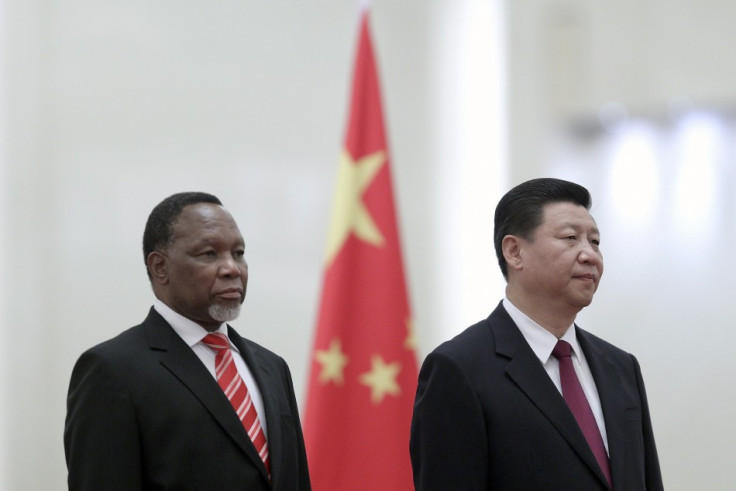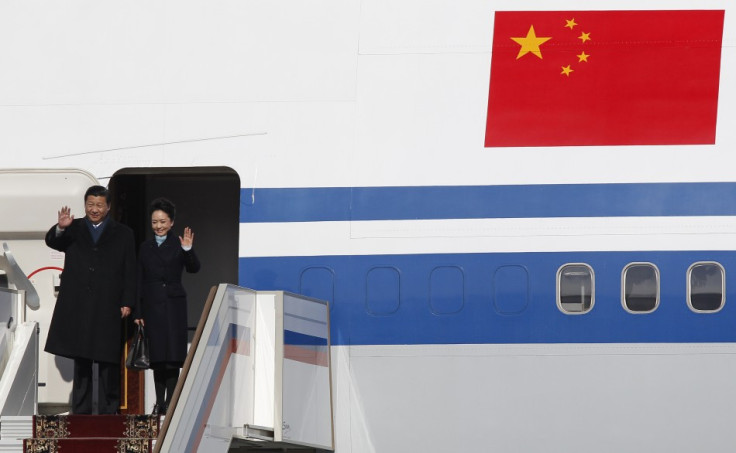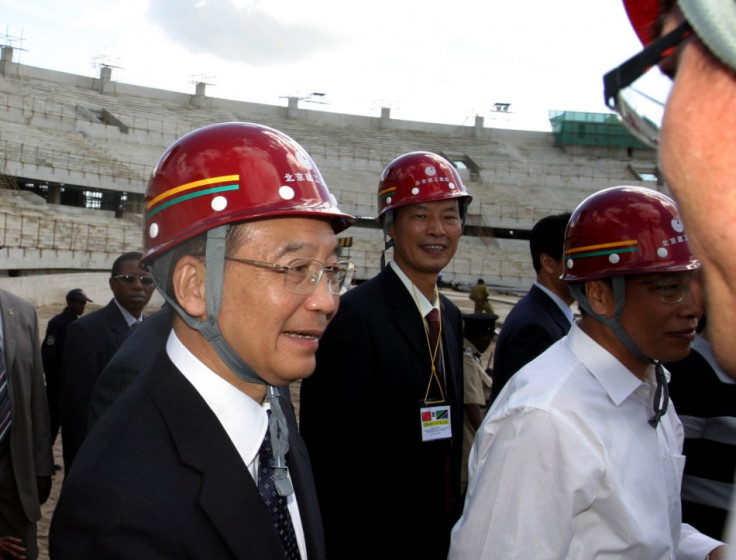China's Xi Jinping to Visit Congo and Tanzania: Charm and Business Set New African Course

China's new president Xi Jinping will visit three sub-Saharan African countries and Russia on his first official trip overseas.
After paying tribute to Russia, Beijing's "most important strategic partner", Xi will travel to Tanzania, South Africa and Republic of Congo.
A comparison with former president Hu Jintao's first overseas tour in 2003 highlights China's shifting geopolitical interests and Xi's determination to improve China's image abroad, analysts say.
"Xi is signalling a long-term commitment to Africa," Dr Ross Anthony, research fellow at the Centre for Chinese Studies at South Africa's Stellenbosch University told IBTimes UK.
In 2003, Hu also started at the Kremlin. He then moved on to oil the wheels of diplomacy with neighbouring Kazakhstan and Mongolia before landing in Europe, where he met France's then president, Jacques Chirac.
Since Hu took over, China's annual trade with Africa has boomed to around $200bn (£131.4bn), according to China's Ministry of Commerce. In 2000, it was $10.5bn.
China is now Africa's largest trading partner, having overtaken the US in 2009, and pours around $14.7bn in direct investment into the continent, up from less than $100m in 2003.
China's growing economic interests in Africa have been spurred on by Beijing's hunger for energy and other resources, which has produced accusations of neo-colonialism.
Earlier this week, China's Ministry of Commerce urged Nigerian central bank governor Lamido Sanusi to "carefully study the history of colonialism" after he wrote in the Financial Times that Beijing is "capable of the same exploitative practices as the old colonial powers".
Dr Anthony said: "China is not trying to colonise Africa in a 19th century way, but economically, the trade pattern with Africa resembles something of a colonial era, whether they like it or not.
"The bulk of stuff going out is raw material and the bulk of stuff coming in is manufactured goods, which is bad for African countries because they are not adding any value to the economy."
Soft Power

The planned stop in South Africa is for Xi to attend the fifth 'Brics' summit in Durban, but the visits to Tanzania and Congo seem designed to replace the growing idea of an aggressive, exploitative China with the image of a more benevolent trading partner engaged in Africa's long-term development.
"China has longstanding geopolitical interests in Congo and Tanzania, stemming from the late 1960s when Mao provided resources to build the Tazara railway from Zambia to Tanzania's Dar e Salaam," said Dr Chris Alden, head of the South African Institute of International Affairs Global Powers and Africa programme.
The 1,800km Tazara railway was seen as China's gift to Africa and for Beijing is a perfect symbol of its long-term commitment.
To emphasise its importance, Xi is to visit Gongo la Mboto cemetery, where Chinese workers who died during the railway's construction are buried.
"In this sense they [China] have kind of clocked on that there has to be a much more sustainable relationship. An unsustainable way to do business leads to political and social instability and threaten China's interests," said Dr Anthony.
China has therefore started engaging in cooperative agreements with its African trading partners, setting up industries that employ local labour and entering grant aid projects such as the construction of new buildings/campuses for universities in DR Congo.
If it wants to get its new message across, however, China's leadership will need to change the way it communicates with foreign audiences.
"In terms of foreign engagement, China often use the same kind of rhetoric it uses internally but it comes across really badly to foreign audiences," said Dr Anthony. "It sounds ominous, in a kind of big brother style.
"Hu Jintao was the epitome of an anonymous looking, reading from the script Chinese bureaucrat, almost personality-less. Xi, on the other hand, seems to have more personality."
Beside a more personal touch, Xi's has another secret weapon in his battle to build soft power: his singer wife Peng Liyuan, a hugely popular figure in China who is accompanying him on the trip.
"She will win over hearts with her warm personality," a friend of the glass-cracking soprano told the FT.
Economic Interests

Besides historical ties, China has also a wide range of economic interests in Tanzania and Congo.
"Economic interests are expanding in both countries, principally in mining, infrastructure and telecommunications, but there is also a burgeoning retail trade," said Dr Alden.
Congo is the fifth largest oil producer in sub-Saharan Africa and approximately one in every two barrels produced is shipped to China.
Timber is Congo's second big natural resource and trading item with China.
Since 2006, Beijing has signed a series of agreements with Congo to cooperate in infrastructure construction.
In 2011 the Imboulou Dam, a large hydroelectric power station 215km north of the capital Brazzaville, was completed by the China National Machinery and Equipment Import and Export Corporation. Beijing is also constructing a 500km road linking Brazzaville with the seaport of Pointe-Noire.
In Tanzania, meanwhile, recent discoveries have increased the country's estimated natural gas reserves to 10 trillion cubic feet. China has offered a $1.2bn loan to build a 532km pipeline from Mnazi Bay and Songo Songo Island in southern Tanzania to Dar es Salaam.
"Chinese companies have also invested significantly in farmland for production of food," said Dr Anthony.
"The broader plan is to link up markets between these different countries and make access for Chinese companies easier."
READ:
'All of Africa is China's Friend' Says Xi Jinping During Tanzania Trip
© Copyright IBTimes 2025. All rights reserved.






















